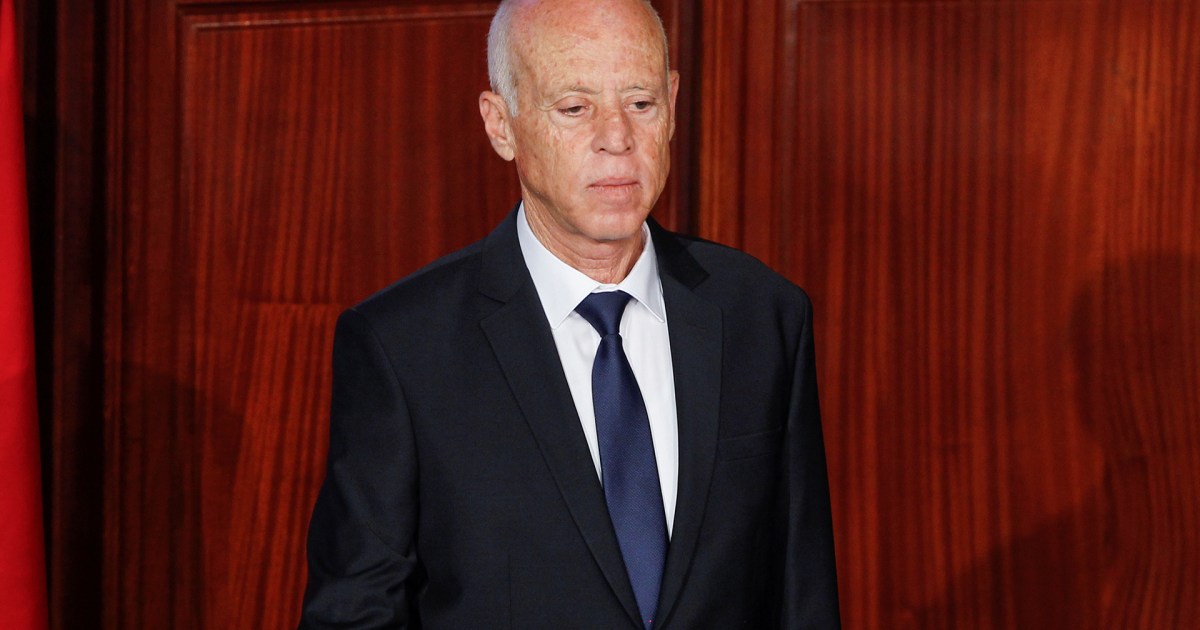Tunisian President Kais Saied called on Tuesday for a national dialogue that would lead to agreeing on a new political system and amending the 2014 constitution, which he said was "all locks", in an effort to resolve the country's acute political crisis.
Saeed's call came during his meeting with Prime Minister Hisham Al-Meshishi and a number of former heads of government at the presidential palace, in an effort to find solutions to the political and economic crisis in which the country is floundering.
In a speech he addressed to public opinion, Saeed called for a national dialogue that would pave the way for political reforms in order to establish a new political and electoral system.
"Experience has proven that the current political organization and the approved method of voting have led to division and disruption of the normal functioning of the state's wheels," a presidential statement said.
Saeed had previously hinted since his election campaign two years ago that he wanted to change the current political system from a modified parliament in which broad executive powers are granted to the prime minister chosen by the majority party, to a presidential one.
Saeed had said last April that his powers as commander in chief of the armed forces also include the internal security forces, not just the army, in an escalation of his dispute with Al-Mashishi over the powers and based on controversial chapters in the constitution.
The relationship between the presidency on the one hand and parliament and the government on the other is dominated by tension, and this has emerged in the frequent constitutional crises, especially in relation to the government amendment that has been suspended since last January, and the Constitutional Court law that the president refused to sign after ratification in Parliament.
To indicate the depth of the political crisis in Tunisia, the meeting between Saeed and Prime Minister Al-Mashichi - who also oversees the Ministry of the Interior - is the first in his capacity as head of government since last January.
Tunisia is the only Arab country that has achieved a peaceful transition to democracy after the Arab Spring uprisings in the region in 2011, but the country's economy is hampered by heavy debts and the deterioration of public services, and its condition has worsened due to the Corona virus pandemic.
The Tunisian constitution - which was approved by parliament in 2014 after the 2011 revolution - was widely praised internationally, and was described as a modernist constitution that guarantees freedom of belief.

